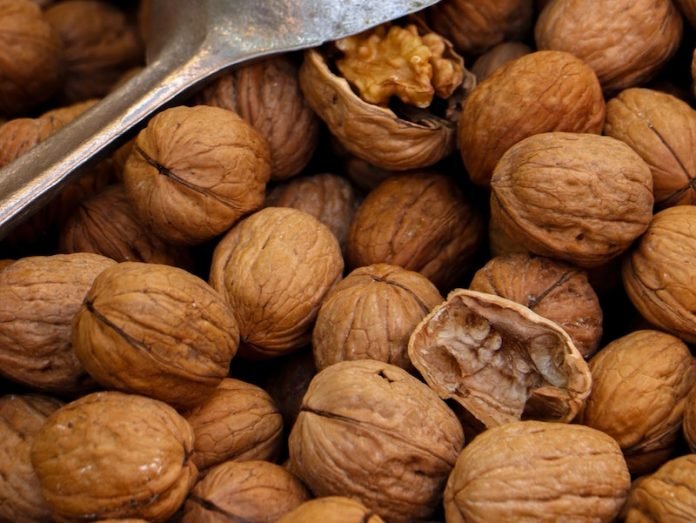
In a new study, researchers found walnuts may not just be a tasty snack, they may also promote good-for-your-gut bacteria.
They suggest that these “good” bacteria could be contributing to the heart-health benefits of walnuts.
They found that eating walnuts daily as part of a healthy diet was associated with increases in certain bacteria that can help promote health.
Additionally, those changes in gut bacteria were associated with improvements in some risk factors for heart disease.
The research was conducted by a team at Penn State.
Previous research has shown that walnuts when combined with a diet low in saturated fats, may have heart-healthy benefits.
For example, previous work demonstrated that eating whole walnuts daily lowers cholesterol levels and blood pressure.
According to the researchers, other research has found that changes to the bacteria in the gastrointestinal tract — also known as the gut microbiome — may help explain the cardiovascular benefits of walnuts.
In the study, the team recruited 42 participants with overweight or obesity who were between the ages of 30 and 65. Before the study began, participants were placed on an average American diet for two weeks.
After this “run-in” diet, the participants were randomly assigned to one of three study diets, all of which included less saturated fat than the run-in diet.
The diets included one that incorporated whole walnuts, one that included the same amount of alpha-linolenic acid (ALA) and polyunsaturated fatty acids without walnuts, and one that partially substituted oleic acid (another fatty acid) for the same amount of ALA found in walnuts, without any walnuts.
In all three diets, walnuts or vegetable oils replaced saturated fat, and all participants followed each diet for six weeks with a break between diet periods.
The team found the walnut diet enriched a number of gut bacteria that have been linked to health benefits in the past.
One of those is Roseburia, which has been linked to the protection of the gut lining. They also saw enrichment in Eubacteria eligens and Butyricicoccus.
The researchers also found that after the walnut diet, there were strong associations between changes in gut bacteria and risk factors for heart disease.
Eubacterium eligens was inversely linked to changes in several different measures of blood pressure, suggesting that greater numbers of Eubacterium eligens was associated with greater reductions in those risk factors.
Additionally, greater numbers of Lachnospiraceae were linked to greater reductions in blood pressure, total cholesterol, and non-HDL cholesterol.
The team says foods like whole walnuts provide a diverse array of substrates — like fatty acids, fiber and bioactive compounds — for our gut microbiomes to feed on.
In turn, this can help generate beneficial metabolites and other products for our bodies.
One author of the study is Kristina Petersen, an assistant research professor.
The study is published in the Journal of Nutrition.
Copyright © 2020 Knowridge Science Report. All rights reserved.



